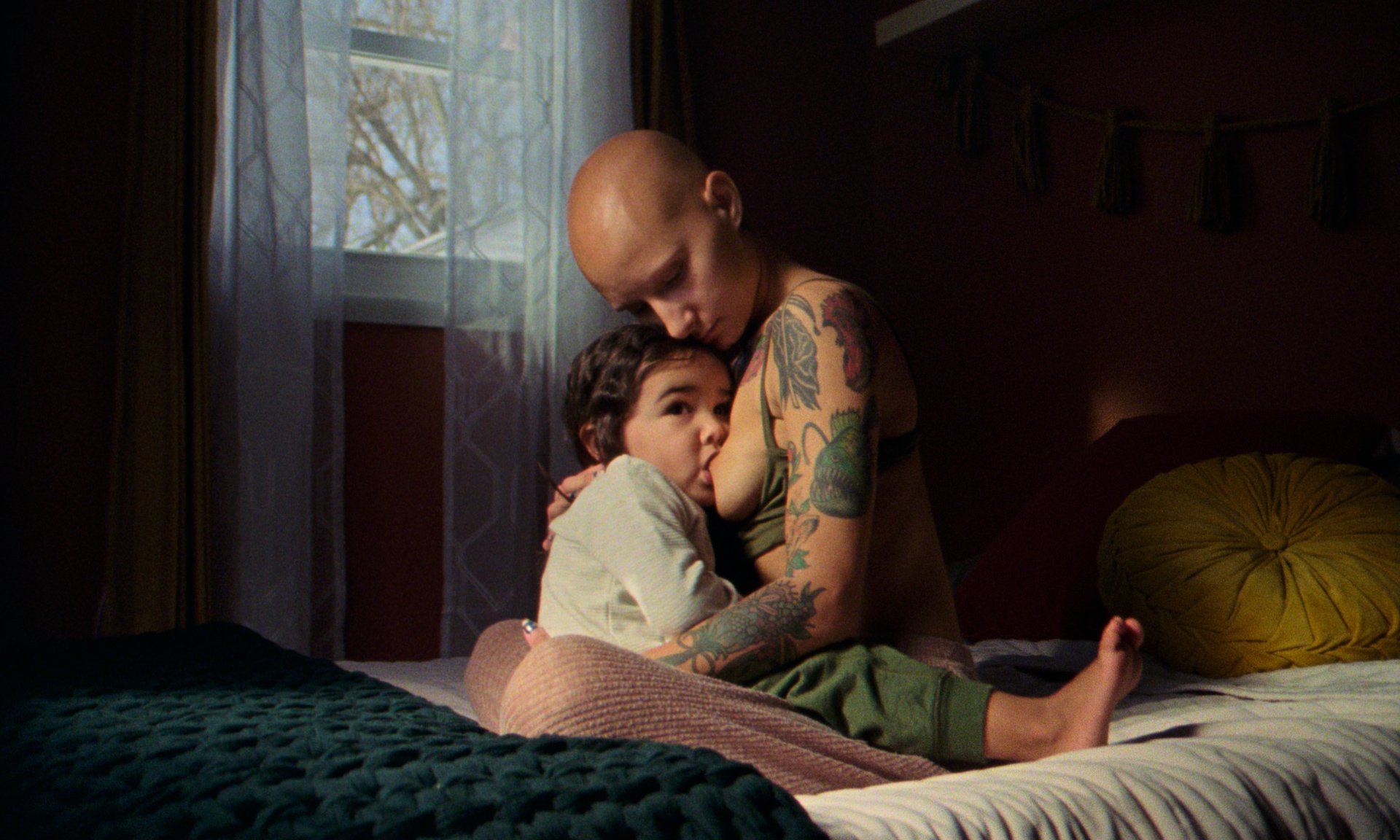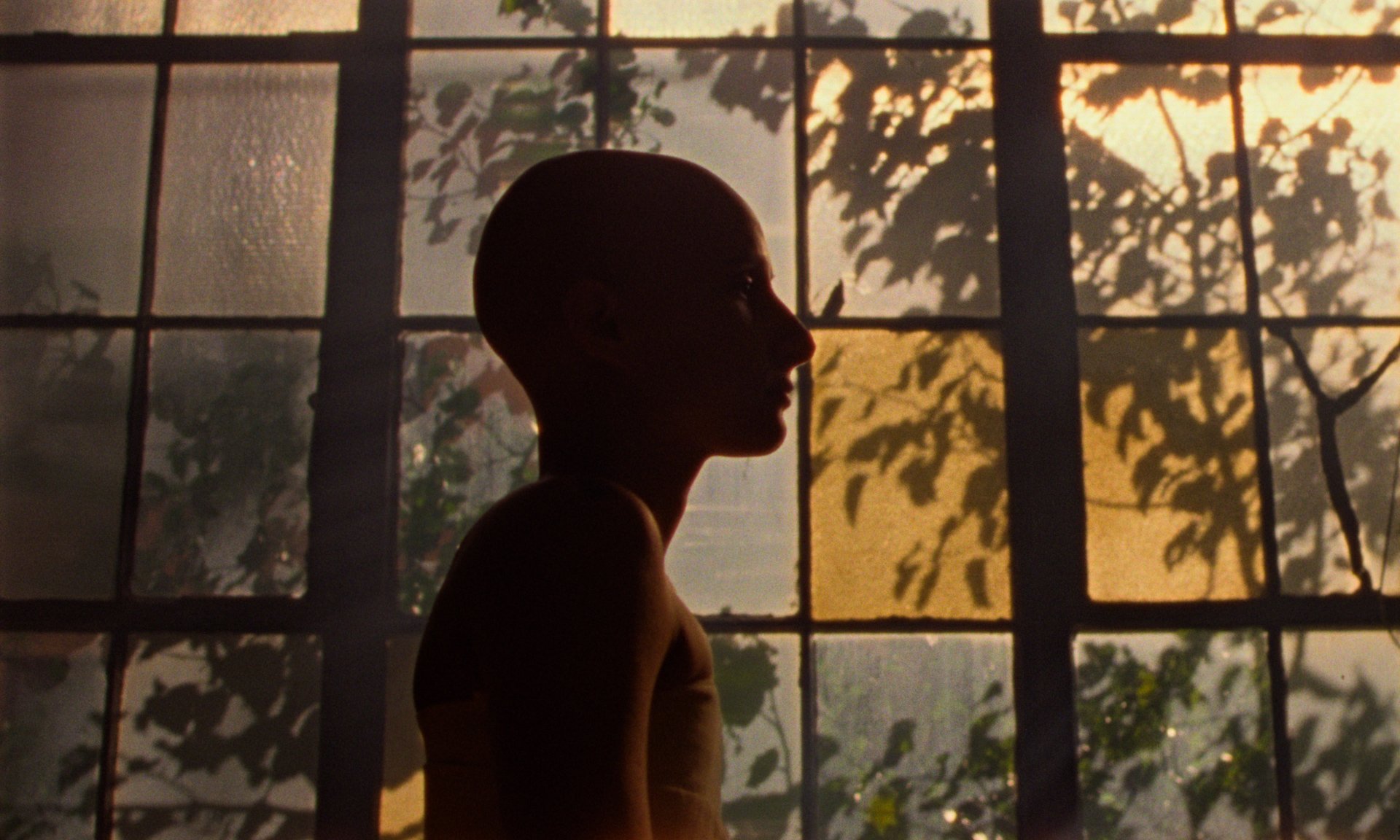Ipseity
Marisa’s Story
Directed by Nicholas Stachurski
Interview by Tatevik Avetisyan
The connection between a mother and child in the breastfeeding stages is the most intimate and nourishing act, enriching the beauty and reflecting the selflessness of motherhood. Nicholas Stachurski, a Detroit-based director, embarked on a journey of voicing the real stories of real people. This time, it is Marisa Kimmel, a mother who struggles with an emotional and physical transformation to conquer the harsh reality of her genetic code.
Sharing personal narratives filled with innermost struggles and dilemmas is the cornerstone of Ipseity, a story of a young mother who underwent a double mastectomy. The film is directed by Eightfold Collective, a company Nick founded after producing several local commercials and consequently launching a platform that unites filmmakers and artists. Now, he gets candid with the behind-the-scenes of Ipseity, Marisa's story, and his personal identity.
What inspires you to direct personal stories and narrate the features of human complexity?
For me, everything in life is about connection - whether it's between people, events or even films. Simple questions like: How does it tie together? What pushes us forward? And where did it come from?
When working with real people, you get to see how they have grown and, hopefully, use that to inspire someone else. I loved scripted stories, but seeing the connectivity and the depths of personal stories is really what moves me. Simple as that.
You grew up in Ann Arbor, MI, spent almost half a year in Thailand during your sophomore years, launched your business – Eightfold, and, over time, brought it to Detroit. With these milestones and background changes, how do you think your upbringing has influenced your oeuvre in general?
My time travelling through Southeast Asia and starting my own business in my 20s has forced me to really be a ‘people person’. I am a true extrovert. For that reason, I love working with people, organising large projects and in-result directing stories about real people.
“I have always wanted to tell a story of motherhood and highlight the beauty of female divinity”
How did the idea of Ipseity come to your mind, and how did you develop the story of Marisa?
The story came to mind over a cup of coffee with Marisa at my coffee shop in Detroit on a Friday afternoon. She mentioned she would be finding out her results on Monday to see if she needed her breasts removed as preventative action for her BRCA gene condition. Three days later, she called me stating the surgery would happen in nine days. So, at that moment, we decided to tell her story and put together the first shoot day with less than two weeks’ notice.
What challenges did you face while directing the story of Marisa?
Honestly, it was one of the smoothest projects I have done to date; Marisa was so great to work with! That being said, we were putting a spotlight on an incredibly difficult moment in her life, so it was a very emotional process. Also, her son Abraham was barely three years old, so anytime you work with little kids, you will have some curve balls.
Marisa’s storyline is quite kaleidoscopic: questioning femininity, confronting breast cancer, embracing motherhood, and building personal identity. Of all the stories that surround you, why Marisa?
I have always wanted to tell a story of motherhood and highlight the beauty of female divinity. As a true ‘momma’s boy’, I am very fond of the love and care mothers provide for their kids. I really wanted to put that on a pedestal.
Do you think that as humanity gets immersed in virtual reality and people become more concerned about their social than personal identity, the notion of ipseity eventually gets dissolved?
I think that statement might be true in some situations, but not in Marisa’s case. She has really used her genetics to define her style, which has been explored deeper due to her virtual profiles. It really is a way for her to express herself and, in return, provide support and insight for other people who may be facing similar challenges.
What was the most practical advice you have ever received in your career?
Don’t ask your mentors for the same advice twice. Always come back to them with new questions and new stories from the last time you spoke.
Can you share your favourite short films that have inspired or sparked your interest?
One of the most inspirational pieces is a commercial by John X Carey. His work for Dove with the forensic artist displayed what you can do on a national scale with the use of video for mass communication; not only advertising, but helping people. Other inspiring shorts include Francisco Gonzalez Sendino's Billy, as well as the Directing duo (1331)"s film called @pole_money.
What are you working on now, and what plans do you have for Eightfold?
This year has been a stepping stone in the commercial world. It will be the first time in many years not doing a personal project, but I am thankful for the back-to-back commercial work. If you can land the right commercials, you can use those to develop your craft, test new lensing and other approaches that will trickle back into your personal shorts, music videos or other projects.
Featuring: Marisa, Abraham & Drew Kimmel
Production Co: Eightfold Co
Director: Nicholas Stachurski
DP: Sam Davis
Production Managers: Faylyn Johnson & Mallory Maxon
1st AC & Loader: Danielle Grow
2nd AC: Jonathan Patterson
Gaffer: David Blake Brown
Grip: Nikolai Cheney & Zack Clark
Production Audio: Andre Botessi
Art Asst: Jena Baylock
PA: Luke Koronich
Editor: Josh Beebe
Post production: Hiatus
Composer: Asha Iwanowicz
Sound Design and Mix: Julienne Guffain of Sonic Union
Colorist: Mike Howell of Color Collective
Flame Artist: Kevin Jones
Title & Design: Brooke Weatherford
Business Manager: Steph Joseph
Associate Producers: Diane Stratton & Dave St. Geroge
Film Dev: Kodak of Atlanta



